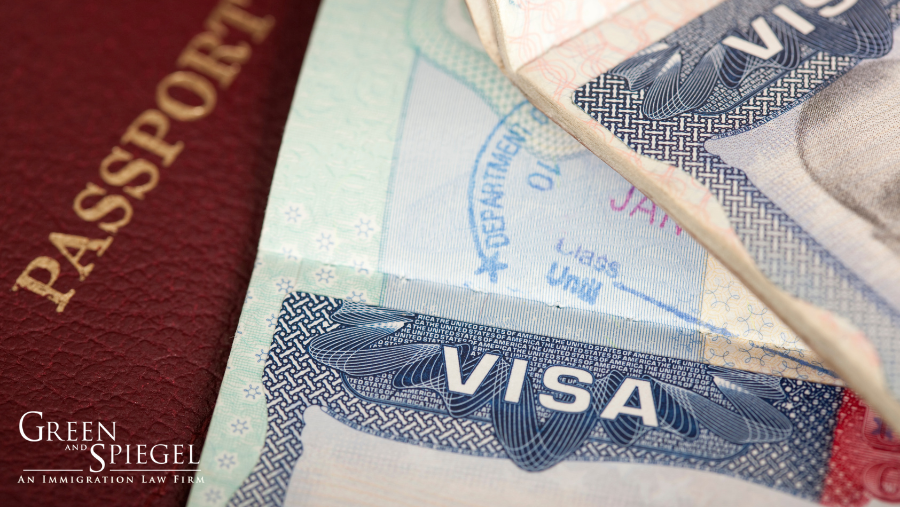Quick Takeaways:
- Effective 11:59 PM April 23, 2020 and for the next 60 days thereafter, some individuals outside the United States seeking an immigrant visa will be prohibited from processing that request.
- Spouses and minor children of U.S. Citizens seeking immigrant visas, amongst others, exempted from suspension.
- Parents and siblings of U.S. Citizens, as well as qualified family members of green card holders, Diversity Lottery winners, and most employment-based immigrant visas subject to suspension.
- Does not apply to lawful permanent residents presently abroad or anyone seeking to adjustment of status (green card) from within the United States.
- Suspension may be extended beyond 60 days, and measures to limit nonimmigrant visa processing may arrive next month.
Within 48 hours of initially announcing a total halt on all immigration to the United States, President Trump signed an Executive Order on April 22, 2020 that will curtail the issuance of immigrant visas to individuals that satisfy the following characteristics on or after April 23, 2020 at 11:59 PM:
- They are outside the United States;
- They do not already have a valid immigrant visa as of that date/time; and
- They also do not have another valid, official travel document such as a transportation letter, boarding foil, or advance parole document.
Such individuals – who generally have been unable to obtain an immigrant visa abroad since last month due to worldwide suspension of U.S. consular services – are now further prohibited from receiving permission to travel to the United States to enter as a lawful permanent resident for at least the next 60 days. The policy justification is that their admission to the United States will further harm unemployed U.S. workers and U.S. health systems that are under intense strain due to COVID-19.
The above-listed characteristics, on their face, mean that the Order does not apply to lawful permanent residents (even those who are currently abroad), individuals who have already been granted an immigrant visa, and anyone seeking a green card within the United States. These limitations are consistent with the purported legal justification for the Executive Order: the President’s authority to suspend the “entry” of individuals he deems “detrimental to the interests of the United States” under Section 212(f) of the Immigration and Nationality Act. As with other COVID–19 Executive Orders, this version does not purport to constrain applications for asylum, refugee status, withholding of removal or protection under the Convention Against Torture.
The Order explicitly goes on to confirm the exemption for current lawful permanent residents, as well as the following individuals:
- Spouses of U.S. citizens
- Children of U.S. citizens under the age of 21, and prospective adoptees seeking to enter on an IR-4 or IH-4 visa
- Individuals and their spouses or children seeking to enter the U.S. on an immigrant visas a physician, nurse, or other healthcare professional to perform work essential to combating, recovering from, or otherwise alleviating the effects of the COVID-19 outbreak (as determined by the Secretaries of State and Department of Homeland Security (DHS), or their respective designees)
- Individuals applying for a visa to enter the U.S. pursuant to the EB-5 immigrant investor visa program
- Individuals who would further important U.S. law enforcement objectives (as determined by the Secretaries of DHS and State based on the recommendation of the Attorney General (AG), or their respective designees)
- Members of the U.S. Armed Forces and their spouses and children
- Individuals and their spouses or children eligible for Special Immigrant Visas as an Afghan or Iraqi translator/interpreter or U.S. Government Employee (SI or SQ classification)
- Individuals whose entry would be in the national interest (as determined by the Secretaries of State and DHS, or their respective designees)
Importantly, the Executive Order does not exempt the parents of U.S. Citizens (who are generally treated equally as the spouses and minor children of U.S. Citizens when the petitioning U.S. Citizen is 21 or older), the married and/or adult children and siblings of U.S. Citizens, and all members of a green card holders family, who are presently abroad and awaiting an immigrant visa. It also does not exempt winners of the Diversity Lottery who are outside of the United States and seek an immigrant visa starting April 24. It is unclear how refusing an immigrant visa to the elderly parent of a U.S. Citizen or green card holder or to the minor child of a green card holder protects U.S. workers. However, as these groups have long been the subjects of this Administration’s ire, it is no surprise that the Executive Order does not accommodate them. And that the Order provides for an extension beyond its initial 60-day period does open up the opportunity for President Trump to discontinue these preference categories via executive fiat when he could not do so legislatively.
On the employment side, with few exceptions (EB-5, physicians/law enforcement/military, potentially EB-2 National Interest Waivers?) most individuals seeking an immigrant visa under an employment-based preference category will be prohibited from doing so for the next two months. Again, the Executive Order does not affect the ability to seek an internal adjustment of status based on an approved employment-based immigrant visa (I-140) petition, as doing so would appear outside the bounds of his cited authority under Section 212(f) [and 215(a)] of the Immigration and Nationality Act.
Moreover, the Executive Order does not add further barriers to the issuance of nonimmigrant visas abroad, nor does it limit the approval of internal changes or extensions of status, including those granted under employment-based classifications. However, Section 6 of the Executive Order does contain ominous language that, though echoed in the Buy American and Hire American order that has created so much consternation over the past 3 years, could open the door for halting and/or adding further requirements to nonimmigrant visa classifications within the next 30 days or so, all under the guise of helping U.S. workers and health systems negatively affected by COVID-19. As above, the President could use this Executive Order to accomplish policy objectives that he has been unsuccessful in achieving via legislative means.
As is the case with almost all of Trump’s immigration related Executive Orders, this latest edition is likely to be subjected to a legal challenge. In fact, the Attorney General of New York State has already indicated that she is ready to take legal action; and if recent history is any indicator, she is unlikely to be alone in that fight. Therefore, the Executive Order’s effect and enforcement may not be as immediate as planned.
No matter what, we at Green and Spiegel remain ready to advise you regarding any and all issues that may arise out of this Executive Order and the ongoing impact of COVID-19 on the immigration system. We encourage you to sign-up for our E-Alerts, follow our Blog and COVID-19 specific page to get our latest updates on these developing situations. And of course, you should never hesitate to contact our office with any inquiries you may have.





